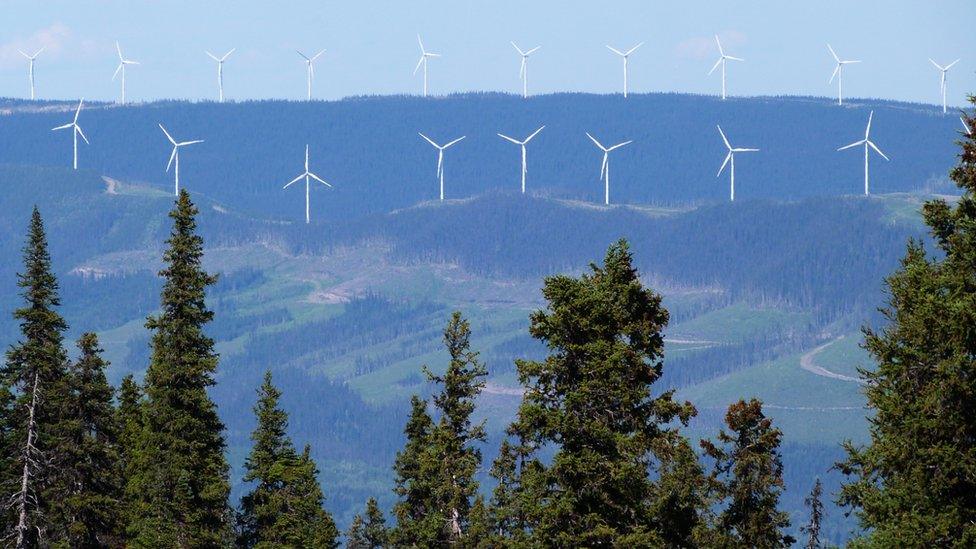Nicola Sturgeon hails climate deal as 'big step forward'
- Published
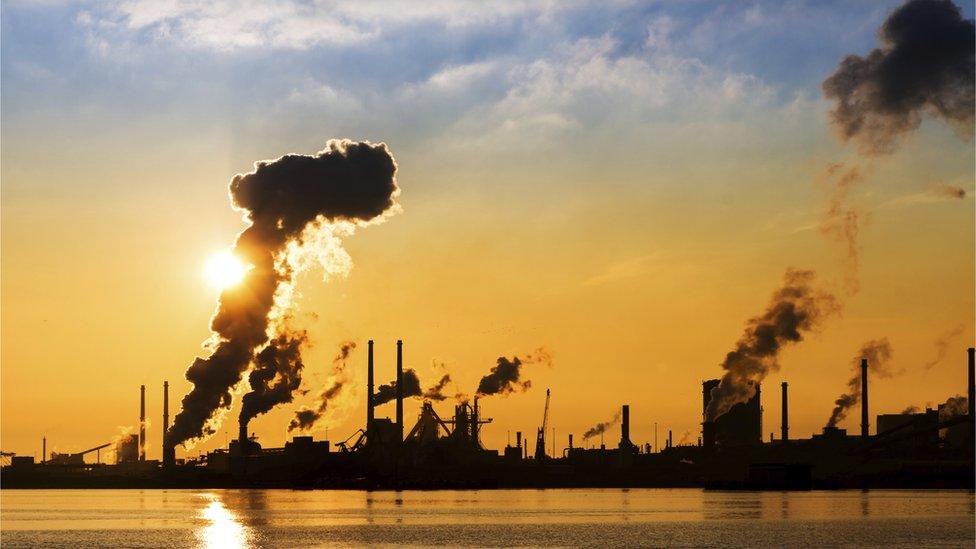
Scotland's First Minister Nicola Sturgeon has described the international deal to tackle climate change as a "big step forward".
The deal, external, made in Paris and agreed by 195 nations, is the world's first comprehensive climate agreement.
It is the first to commit all countries to cut emissions and follows nearly two weeks of negotiations.
The agreement has been welcomed by Scottish politicians and environmental groups.
Ms Sturgeon said: "COP21 has, as we had hoped, achieved a big step forward in the international fight against climate change.
"This historic agreement sends a signal of certainty about the global economy's low carbon future, in the same way as we did for Scotland through our world-leading climate legislation in 2009. We want to avoid the worst impacts of climate change falling on the poor and vulnerable.
"Now that the talking is over, what's important is that the rhetoric is backed up by meaningful action - not least in the crucial area of energy policy where we need the UK to assist Scotland's drive to develop renewables and carbon capture and storage, not stymie it as they have done this year."
Key points
The measures in the agreement include:
• To peak greenhouse gas emissions as soon as possible and achieve a balance between sources and sinks of greenhouse gases in the second half of this century
• To keep global temperature increase "well below" 2C (3.6F) and to pursue efforts to limit it to 1.5C
• To review progress every five years
• $100 billion a year in climate finance for developing countries by 2020, with a commitment to further finance in the future.
'Consistent priorities'
Finance spokesman for the Scottish Greens, Patrick Harvie, said the intentions outlined by the Paris agreement could not be achieved "unless fossil fuels are urgently abandoned".
He added: "This week's draft budget statement from the Scottish government must deliver serious investment in the low-carbon infrastructure our country needs, in turn creating the jobs of the future.
"Energy efficient housing, better public transport and support for community and publicly owned renewables have been consistent priorities from the Scottish Greens.
"A bold budget and a clear commitment to move away from unburnable oil and gas is the only credible response."
WWF Scotland director Lang Banks, who was in Paris as an observer, said: "While we did not achieve all that we wanted from the Paris agreement for people and nature most threatened by climate change, we all return home ready to push our national governments to deliver on the promises they did make and work to strengthen the national actions triggered by the new agreement.
"The Paris moment created several firsts, including the securing of pledges from over 180 nations to limit their climate change emissions, as well as seeing transformative plans to massively scale-up renewables across India, African nations and many other countries."
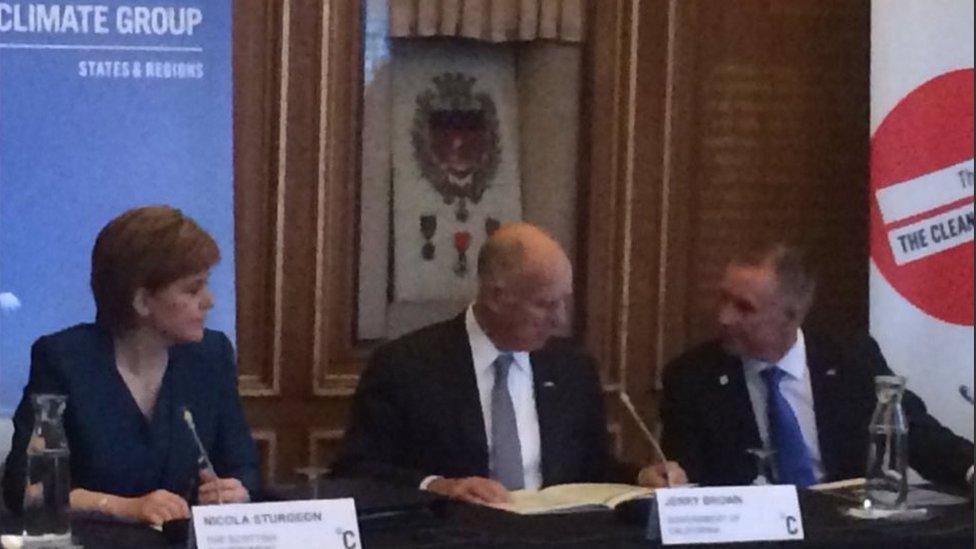
Nicola Sturgeon attended the climate talks in Paris
However, Friends of the Earth Scotland claimed the deal had "failed to deliver a deal that urgently tackles the climate crisis and the needs of those most vulnerable to its impacts".
Its director, Dr Richard Dixon, said: "With bullying tactics and throwing in some piecemeal pledges, rich countries have pushed through an agreement that spells bad news for people and the planet.
"By delaying critical action to cut greenhouse gas emissions and failing to put sufficient finance on the table, leaders have effectively signed a death warrant for millions of the poorest people around the world."
'Plodding behind'
The charity also criticised the lack of legally-binding obligations in the deal to ensure its success and the failure to establish a date to end the use of fossil fuels.
Tom Ballantine, chairman of Stop Climate Chaos Scotland, said: "Before the Paris talks, many hundreds of thousands of people around the world came together to demand urgent climate action and to highlight the positive changes that communities are already taking to reduce carbon emissions.
"The deal in Paris shows that politicians are plodding behind that popular global movement.
"Despite the failure to reach a strong, ambitious deal in Paris, we can take hope from the fact that change is happening."
- Published13 December 2015
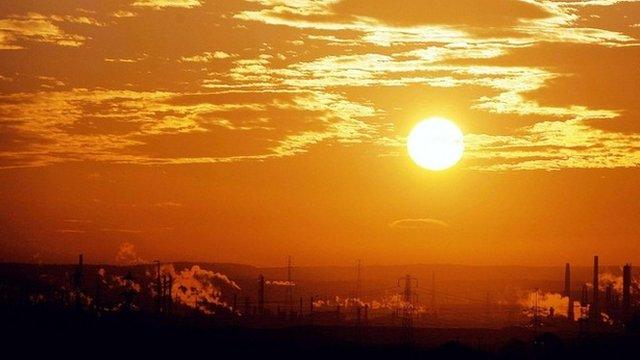
- Published12 December 2015
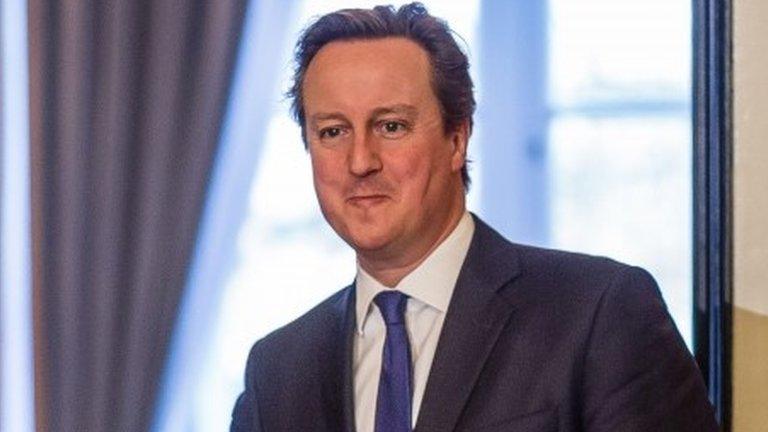
- Published7 December 2015
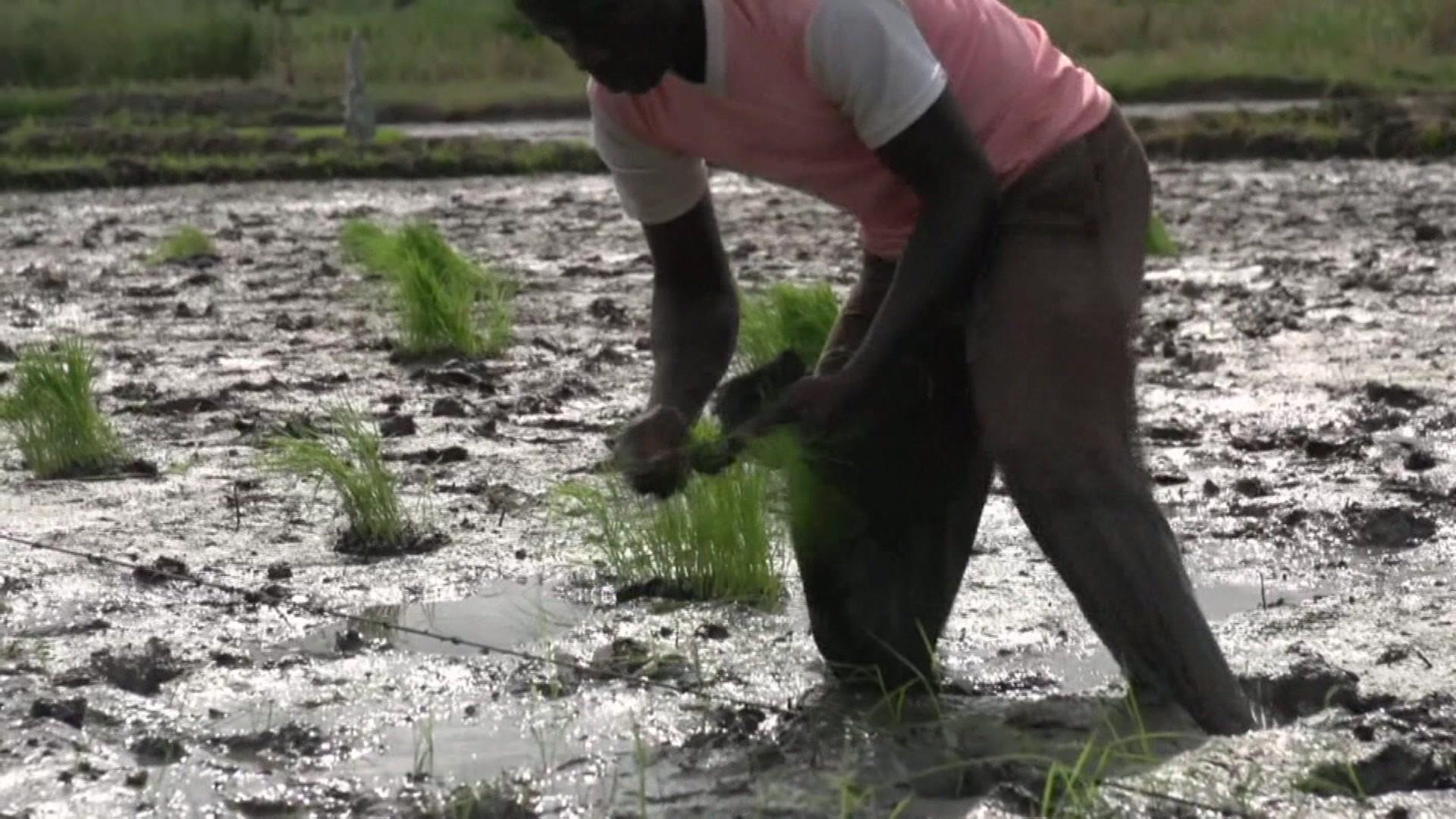
- Published28 November 2015
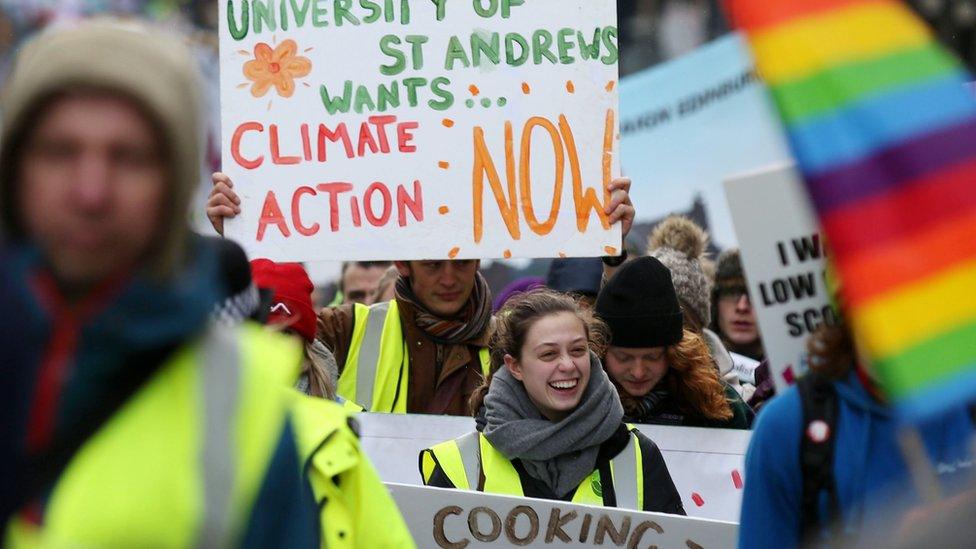
- Published31 August 2015
